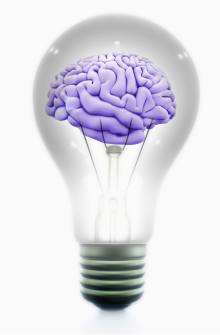Contact: Lauren Ullrich, PhD
Contact Email: lauren.ullrich@nih.gov
Location:
DoubleTree by Hilton Hotel Bethesda

This workshop is being held to discuss issues on institutional change and transparency in pursuit of enhancing the diversity of the neuroscience workforce. It is a follow-up to two previous workshops: one in 2016 to identify successful approaches to recruit, train, and retain diverse individuals in the neuroscience workforce and a second in 2017 to discuss the issues, misconceptions, and barriers that currently exist in neuroscience graduate admissions programs with regard to diverse trainees.
The 2019 workshop goals are:
- building alliances between individuals who are actively engaged in addressing issues surrounding workforce diversity and individuals engaged in neuroscience training;
- identifying opportunities and sharing successful approaches for more effective institutional change;
- fostering dialog around institutional approaches to interventions targeted at critical transition points along the career path, such as entry to and persistence in training programs (undergrad, grad, and postdoc) and hiring and retaining diverse faculty;
- providing training to administrators of neuroscience R25 and T32 training programs on how to implement institutional change around diversity and inclusion at their institutions; and
- receiving feedback on how NINDS programs and policies can catalyze institutional change around a diverse neuroscience workforce. The attendees will be neuroscience graduate program directors, directors of neuroscience undergraduate research programs, and experts in diversity and inclusion.
Agenda and Resources
DAY 1: April 29, 2019
| Time | Event | Resources |
|---|---|---|
| 7:00 – 8:00 am | Registration | |
| 8:00 – 8:25 am |
Welcome Meeting Goals |
|
| 8:25 – 9:25 am |
Featured Lecture |
Presentation Slides - Carnes(pdf, 558 KB) (pdf, 545 kb) A Gender Bias Habit-Breaking Intervention Led to Increased Hiring of Female Faculty in STEMM Departments J Exp Soc Psychol, November 2017 |
| 9:45 – 12:00 pm |
Panel 1: Strategies for Institutional Change Moderator: Letitia Weigand, Ph.D. – NINDS
Discussion/Brainstorming in Small Groups |
Presentation Slides - Beuning(pdf, 482 KB) (pdf, 475 kb) Presentation Slides - Asai(pdf, 4015 KB) (pdf, 3.9 mb) STEM Equity Achievement (SEA) Change SEA Change Handbook and Criteria & Guidelines ADVANCE: Organizational Change for Gender Equity in STEM Academic Professions |
| 12:00 – 1:00 pm | LUNCH | |
| 1:00 – 3:15 pm |
Panel 2: Making Data-Driven Decisions Moderator: Lauren Ullrich, Ph.D. – NINDS
Discussion/Brainstorming in Small Groups |
Presentation Slides - Watkins(pdf, 3655 KB) (pdf, 3.6 mb) Presentation Slides - Pickett(pdf, 1589 KB) (pdf, 1.6 mb) Presentation Slides - Gibbs(pdf, 2879 KB) (pdf, 2.8 mb) Coalition for Next Generation Life Science A New Data Effort to Inform Career Choices in Biomedicine Becoming More Transparent: Collecting and Presenting Data on Biomedical Ph.D. Alumni Improving Support for Young Biomedical Scientists The GSS is an Unreliable Indicator of Biological Sciences Postdoc Population Trends Examining the Distribution of K99/R00 Awards by Race Biomedical Science Ph.D. Career Interest Patterns by Race/Ethnicity and Gender |
| 3:35 - 6:00 pm |
Panel 3: The Role of Societies & Associations in Institutional Change Moderator: Marguerite Matthews, Ph.D. – NINDS
Discussion/Brainstorming in Small Groups |
Presentation Slides - Nishi and Jones(pdf, 4079 KB) (pdf, 4.0 mb) Department Chair Training to Increase Women in Neuroscience |
DAY 2: April 30, 2019
| Time | Event | Resources |
|---|---|---|
| 8:00 – 8:10 am |
Welcome and Introduction of Activity |
|
| 8:10 – 9:10 am |
Landis Award Winners Share Their Mentoring Philosophy Moderator: Letitia Weigand, Ph.D. – NINDS |
The NINDS Landis Award for Outstanding Mentorship by an NINDS Investigator |
| 9:10 – 11:10 am | Interactive Mentor Training to Increase Research Self-Efficacy Arpita Ghosh, Ph.D. National Research Mentoring Network The University of Kansas |
Center for the Improvement of Mentored Experiences in Research (CIMER) |
| 11:20 – 12:00 pm | NIH's Scientific Approach to Inclusive Excellence: Focus on Institutional Accountability Hannah Valantine, M.D. Chief Officer for Scientific Workforce Diversity - NIH |
From the NIH: A Systems Approach to Increasing the Diversity of the Biomedical Research Workforce NIH Scientific Workforce Diversity Toolkit NIH Office of Scientific Workforce Diversity
|
| 12:00 – 12:30 pm | Report out, concluding remarks, and ADJOURN |
|
April 29 - 30, 2019
This workshop was held to discuss issues on institutional change and transparency in pursuit of enhancing the diversity of the neuroscience workforce. It is a follow-up to two previous workshops: one in 2016 to identify successful approaches to recruit, train, and retain diverse individuals in the neuroscience workforce and a second in 2017 to discuss the issues, misconceptions, and barriers that currently exist in neuroscience graduate admissions programs with regard to diverse trainees.
The 2019 workshop goals were: 1) building alliances between individuals who are actively engaged in addressing issues surrounding workforce diversity and individuals engaged in neuroscience training; 2) identifying opportunities and sharing successful approaches for more effective institutional change; 3) fostering dialog around institutional approaches to interventions targeted at critical transition points along the career path, such as entry to and persistence in training programs (undergrad, grad, and postdoc) and hiring and retaining diverse faculty; 4) providing training to administrators of neuroscience R25 and T32 training programs on how to implement institutional change around diversity and inclusion at their institutions; and 5) receiving feedback on how NINDS programs and policies can catalyze institutional change around a diverse neuroscience workforce. The attendees were neuroscience graduate program directors, directors of neuroscience undergraduate research programs, and experts in diversity and inclusion.
Download the Program Booklet(pdf, 6422 KB)
Read the full Meeting Summary(pdf, 493 KB)
